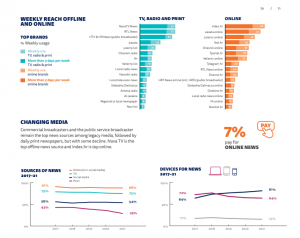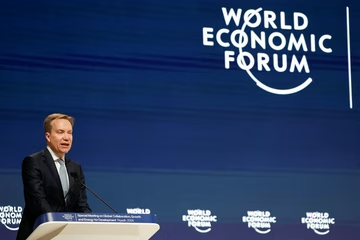Reuters Institute’s 2021 report: Many admire N1 for its independent reporting

"Covid-19 has exacerbated the financial pressures on Croatia’s legacy media seeking to adapt to the shift of readers and advertising revenues online. Journalists have lost jobs, wages, and come under more political pressure. Meanwhile, current outdated regulatory arrangements risk reducing the range of news channels and pose a threat to pluralism in Croatia," media analyst Zrinjka Perusko said for Reuters Institute's annual Digital News Report for 2021, released on Wednesday.
The report, which provides an overview of media landscapes in 46 markets covering more than half of the world’s population, includes short country reports penned by local anaysts. Reuters Institute for the Study of Journalism (RISJ) is a research institute largely financed by the Thomson Reuters Foundation and is part of the Oxford University in the UK.
In its 2021 report, the Institute listed several issues facing Croatian journalists, including political pressures.
“In April 2021 the (national journalists’ association) HND published a report documenting the continued use of lawsuits to silence journalists investigating people in power. They found 924 such cases, primarily against journalists working for Hanza Media and Styria, publishers of the largest dailies Jutarnji List, 24 Sata, and Vecernji List,” Perusko, from the University of Zagreb’s Centre for Media and Communication Research, wrote.
“Commercial television channels RTL, N1 and NOVA TV came under increased pressure by the Prime Minister Andrej Plenkovic, who accused the media of conspiring against his party’s (HDZ) candidates, following local elections in May 2021. Proposed amendments to the Law on Electronic Media initially attracted attention because of plans to limit hate speech in online comments on news stories. The proposal to hold media organizations responsible for this content has been widely criticized. Some fear that news media would choose to disable online comments if they were held liable for their content,” Perusko added.
The report also mentioned N1 television, which was dropped by major cable television provider A1 earlier this year.
“Another issue around the media law relates to popular cable news channel N1, which many admire for its independent reporting. In spring 2021, the channel was removed from the package provided by an important telecom operator, A1. Because N1 is a cable channel owned by the United Group, operating from the Netherlands, and is not a free-to-air television channel with a national license, it is not covered by the cable-must-carry rules that apply to stations licensed in Croatia.
The risk now is that the country’s largest telco, HT, follows suit. If it does, N1’s audience would be very hard hit. The channel is hoping the issues will be resolved in a new media law or a national broadcasting licence. If they are not, the potential loss of distribution would pose a real risk to media pluralism and damage the diversity of the Croatian information ecology,” Perusko said.
According to online polls conducted in January and February 2021 by YouGov and their partners on a sample of about 2,000 Croatians, all types of sources for news are falling in popularity – although online is still the number one source for news for some 88 percent of people polled. Smartphones are the preferred device for getting news for 81 percent of Croatians.

“Trust in the news has increased overall and for the sources people use themselves. Commercial broadcasters Nova TV and RTL are the two most trusted brands, followed by quality newspapers – with the public broadcasters lower down. Sources associated with the left or right side of the political spectrum (Index.hr and Dnevno.hr, respectively) carry higher levels of mistrust than other brands,” the report said.
Kakvo je tvoje mišljenje o ovome?
Učestvuj u diskusiji ili pročitaj komentare





 Srbija
Srbija
 Hrvatska
Hrvatska
 Slovenija
Slovenija



























































